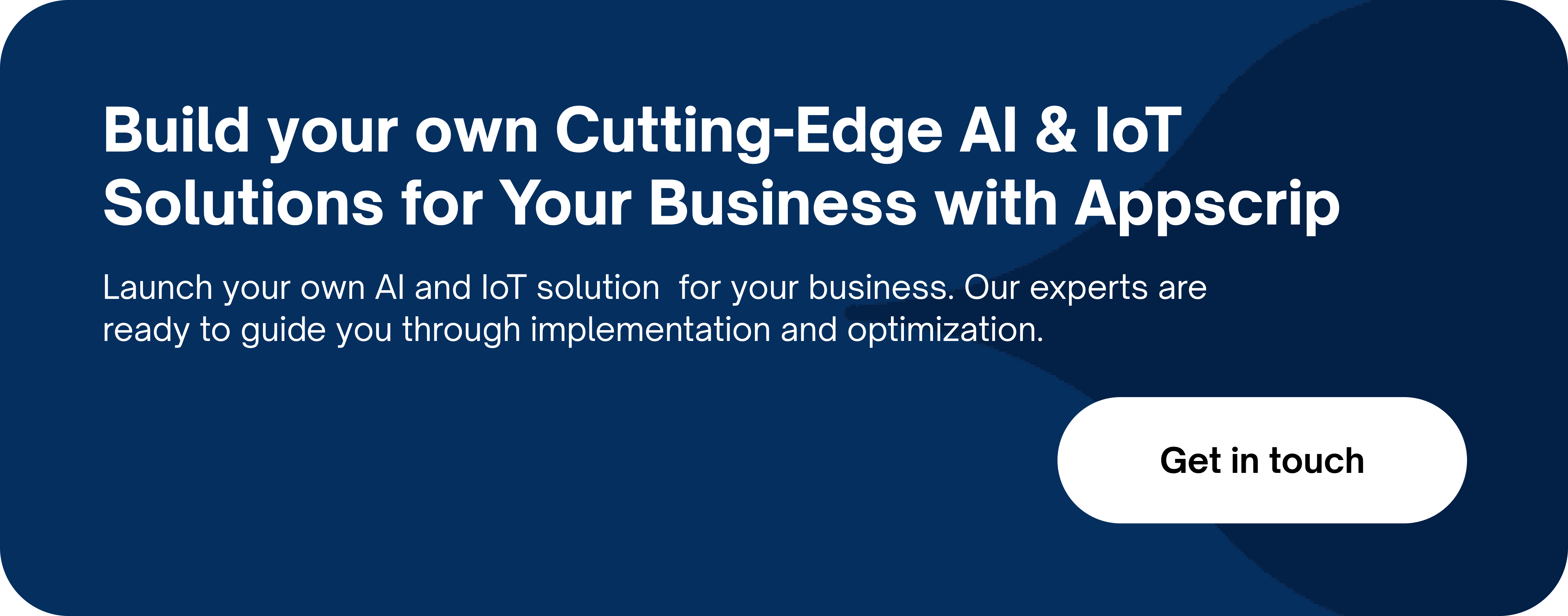Machine learning (ML) is becoming more important in the world of technology, especially in the field of mobile app development. Apps are becoming smarter, more intuitive, and extremely user-friendly thanks to machine learning technology, which is also revolutionising the design and functionality of apps. The incorporation of machine learning into mobile applications is going beyond just a passing fad; it is a game-changer that is establishing new standards for customization, effectiveness, and engagement.
This blog will provide you with comprehensive information about machine learning app development, including all the necessary details, expenses, and aspects that impact it.
Why Machine Learning In Mobile App Development Is A Good Idea
Machine learning’s primary objective is to maximise the ease of use of a mobile app. Here is why machine learning in mobile app development is a good idea:
- Personalization: Machine Learning algorithms can analyse user data to provide personalised content, recommendations, and services, making each user’s experience unique.
- Enhanced Security: By detecting unusual patterns of behaviour, ML can significantly improve app security, protecting users from fraud and data breaches.
- Voice and Image Recognition: ML-powered features like voice assistants and image recognition have become more accurate and reliable, simplifying user interaction with mobile apps.
- Predictive Analytics: By predicting user behaviour, machine learning can enhance user engagement and retention, providing insights that help developers create more compelling content.
Step By Step Process of Machine Learning In Mobile App Development
Developing a mobile application that incorporates machine learning (ML) involves a series of steps, each crucial for ensuring the app is efficient, user-friendly, and capable of leveraging the power of ML to enhance user experience. Below, we outline the essential steps involved in the process of machine learning mobile app development:
Defining the Objective
Identify the Problem: Clearly define the problem you aim to solve with your mobile app. This step is fundamental as it guides the entire development process.
Set Goals: Determine what you want to achieve with machine learning. Set specific, measurable, achievable, relevant, and time-bound (SMART) goals for your machine learning assisted mobile app development.
Data Collection
Gather Data: Collect a comprehensive dataset that your machine learning model will learn from. The quality and quantity of your data directly impact the effectiveness of your model.
Data Sources: Data can come from various sources, including user inputs, sensors on the device, or external databases.
Data Preprocessing
Cleaning: Remove irrelevant or duplicate data to ensure the dataset is accurate and concise.
Transformation: Convert data into a format suitable for machine learning models. This might be through normalising or standardising the data.
Choosing the Right ML Model
Model Selection: Based on the problem and the type of data, select an appropriate machine learning model. Options might include decision trees, neural networks, or reinforcement learning models, among others.
Custom vs. Pre-trained Models: Decide whether to develop a custom model from scratch or use a pre-trained model. Pre-trained models can save time but might not be as tailored to your specific needs.
Model Training
Training Dataset: Use a portion of your collected data to train the machine learning model. This process involves the model learning from the data to make predictions or decisions.
Validation: Use another portion of the data to validate the model’s accuracy and make adjustments as necessary.
Integration into the Mobile App
APIs: Integrate the ML model into the mobile app using application programming interfaces (APIs). This allows the app to communicate with the model.
On-device vs. Cloud-based: Decide whether the ML model will run on the user’s device or on a cloud server. On-device processing ensures privacy and offline functionality, while cloud-based allows for more computation power.

Testing
Functional Testing: Ensure the app functions as intended, including the machine learning features.
User Experience (UX) Testing: Evaluate the app’s usability and the effectiveness of the ML features in enhancing user experience.
Deployment and Monitoring
Launch: Release the app on the appropriate platforms (e.g., Google Play Store, Apple App Store).
Monitor Performance: Continuously monitor the app’s performance and the accuracy of the ML model. Collect user feedback for further improvements.
Continuous Improvement
Iterate: Machine learning models can always be improved. Regularly update the model with new data, and tweak it based on user feedback and performance metrics.
Use Cases Of Machine Learning In Mobile App Development
Here are some of the real-world use cases of machine learning in mobile app development:
Medical Field: Detection and treatment of diseases are two of the many vital healthcare activities that have integrated machine learning. In order to help with medical diagnosis and therapy recommendations, ML solutions collect and analyse patient data. Another promising trend is predictive healthcare models, which promise to completely transform the way patients are treated.
Cybersecurity: The cybersecurity ecosystem is being revolutionised by machine learning. Machine learning (ML) solutions can improve security analysis, identify potential vulnerabilities, and even provide guidance on how to effectively respond to cyber attacks by evaluating incident reports, alerts, and other data sources.
Transportation: There has been a dramatic shift in the transportation landscape due to the advent and increasing usage of smart and autonomous cars. To enable fully autonomous vehicles to travel without human input, AI systems supported by machine learning algorithms are crucial for traffic monitoring and prediction.
Construction and Manufacturing: Manufacturing is another sector that stands to benefit greatly from machine learning. To avoid downtime and production interruptions, businesses that use assembly lines can use ML algorithms, sensors, and AI to anticipate when maintenance is needed.
Online Retail: The use of machine learning is one of the main factors that is causing an enormous shift in online retail. In order to increase average order values and revenue, ML solutions can tailor product recommendations to each customer’s unique interests.
Finance: Predicting future trends, managing investments, and completing transactions all necessitate analysis and automation in the financial sector, which deals with massive volumes of data. Across many industries, machine learning and AI have proven to be valuable in the fight against fraud.
Marketing: Using machine learning app development solutions can also help the marketing sector a lot. By tailoring ad targeting and engagement to each user’s specific interests and requirements, this technology can boost the effectiveness of advertising efforts.

Cost Of Machine Learning Mobile App Development
Creating a machine learning app costs approximately $50,000–$300,000. Project complexity, delivery deadline, number of features, location of the machine learning app development company, etc. all play a role in determining the final cost of the development project.
Complexity of the App: The primary element influencing the total development cost of an app is its overall complexity. A complicated machine learning app with many features will cost more to build than a simple app with few features.
Data Accessibility: Costs associated with gathering and cleaning data sometimes drive up the final cost of app development. For example, if the data necessitates manual labelling or thorough data cleaning, it could have a significant impact on the budget.
The Choice of Algorithm: Since development time and expertise differ for each machine learning algorithm and method, the total cost of building an app might also be affected by these choices. In order to train more complex algorithms, more datasets are typically required, which can drive up the cost of data collection.
Training of Models: Spending time and money training machine learning models can have an impact on the total cost. Effective model training may require specific cloud services. This may increase infrastructure and operational costs.
Existing System Integration: The total cost can go up if more development effort is needed to integrate machine learning into an already existing app or platform. Modifications to the current software architecture may be required for a smooth integration. This may impact project deadlines and costs.
Data and Licensing Expenses: Proprietary algorithms, third-party databases, and APIs can increase development costs.
Conclusion
The potential for machine learning in mobile apps is virtually limitless, promising a future where apps are not just tools, but intelligent companions that understand and anticipate our needs. This is where professional expertise comes into play. If you’re looking to harness the power of machine learning for your mobile app, partnering with a seasoned developer can make all the difference.
Appscrip stands at the forefront of machine learning assisted mobile app development solutions. With a proven track record of delivering cutting-edge apps that leverage the latest in ML technology, Appscrip can help turn your vision into reality. Whether you’re aiming to enhance user experience, increase engagement, or introduce groundbreaking features, our team of experts is equipped to bring your ideas to life.









